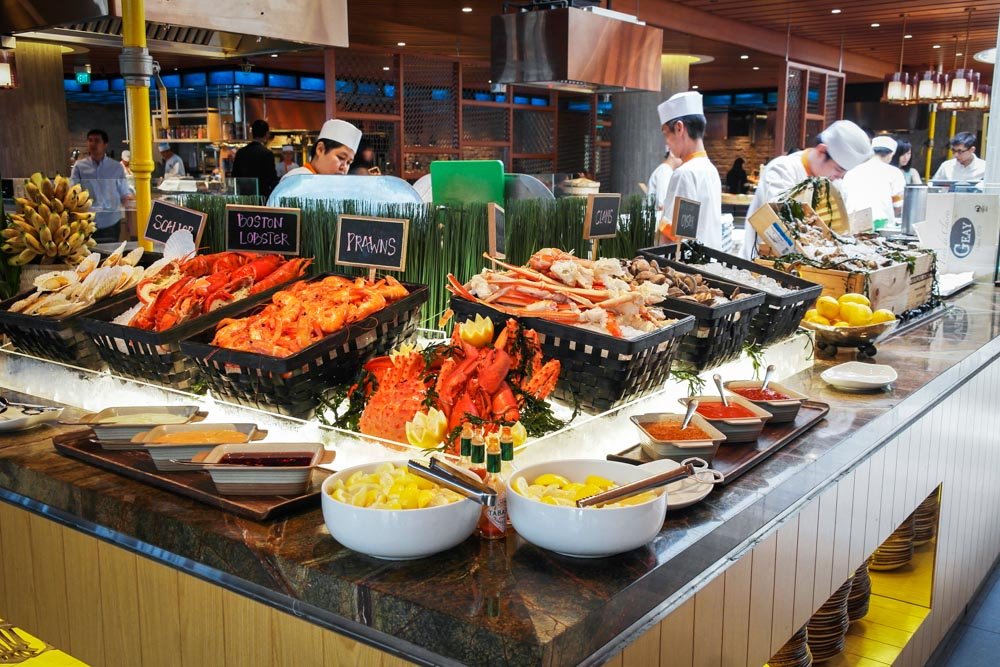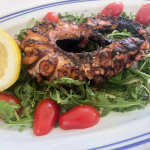When we examine premium buffet catering Singapore offices rely upon for their most important gatherings, we uncover something profound about modern business life. In the towers of Raffles Place and corridors of One-North, the choice between a $13.90 basic spread and an $80 premium feast reveals the web of status, belonging, and power that defines contemporary corporate culture.
I spent months observing Singapore’s corporate dining ecosystem, watching how food becomes currency in workplace relationships. What emerges is a portrait of how a city-state uses shared meals to both reinforce and challenge its hierarchies.
The Sociology of the Conference Room Buffet
On a Tuesday morning in Marina Bay, I watched employees from a consulting firm gather around an elaborate buffet table. The spread featured “live pasta bars, DIY taco counters, and made-to-order dessert crepe stations”—the new frontier of corporate hospitality.
“Gone are the days of static buffet lines. In 2025, interactive food stations are the star of the show,” explains one industry observer. This shift toward interactive dining mirrors Singapore’s transformation to a knowledge economy, where collaboration and creativity have become productivity metrics.
The senior partners approached the buffet first—an unspoken protocol. Middle managers followed, discussing the “Korean BBQ tacos.” Junior associates waited, observing which dishes their superiors selected.
The hierarchy of corporate dining reveals itself through:
-
Menu selection: Premium fusion versus basic local options
-
Service style: Full-service setups versus self-service containers
-
Timing protocols: Who eats first and when others join
The Price of Belonging: Understanding Singapore’s Catering Economy
The numbers tell their own story of workplace stratification. Basic buffets start from $10-18 per person, whilst premium experiences reach $80 per person, featuring “wagyu beef, lobster, or gourmet appetizers.”
This pricing creates a “dining divide”—clear delineation between ordinary meals and elevated experiences for client meetings and executive retreats. Your organisational value can be measured in the quality of food provided for events you attend.
Consider Sarah, a marketing coordinator I met. She described the difference between her department’s monthly lunches—simple bento boxes at $15 per person—and client presentations, where leadership ordered premium buffets at triple the cost.
“You learn to read the catering budget like a barometer of your importance,” she observed. “When they order the good stuff, you know you’re impressing someone important.”
Cultural Capital and the Politics of Taste
Singapore’s position as a cultural crossroads manifests in its corporate catering landscape. The popularity of fusion cuisine—”Korean BBQ tacos, sushi burritos, or truffle-infused dumplings”—reflects the city-state’s multicultural workforce.
Yet this culinary cosmopolitanism creates inclusion and exclusion. Employees who appreciate international cuisines gain cultural capital, whilst those preferring traditional dishes may find themselves marginalised in conversations about “innovative” menu choices.
Modern corporate catering trends reflect social changes:
-
Interactive experiences: Emphasis on engagement over passive consumption
-
Sustainability focus: Environmental consciousness as corporate signaling
-
Customisation options: Individual choice within collective experiences
The Theatre of Corporate Hospitality
Corporate catering functions as elaborate performance art. The “premium caterer offering great quality food with impeccable decor” serves clients who understand they’re buying a choreographed experience designed to convey success and sophistication.
I watched one technology startup spend $65 per person on their product launch buffet. The CEO later admitted the catering budget exceeded their monthly office rent, but justified it as “essential for showing investors we understand quality.”
The Human Cost of Hospitality Hierarchies
Behind the gleaming dishes work Singapore’s catering employees—predominantly migrant workers who prepare, serve, and clean up after corporate celebrations. Mary, a Filipino catering assistant, works twelve-hour shifts. She earns monthly what some executives spend on a single premium buffet.
“The bosses want everything perfect,” she explained. “Even chopstick placement must be exact. They say it shows respect for guests, but I think it shows respect for money.”
The Future of Corporate Dining: Sustainability and Social Consciousness
Singapore’s corporate catering industry faces challenges from younger employees who prioritise sustainability over ostentatious displays of corporate wealth. Companies increasingly choose vendors based on environmental practices and labour standards rather than purely prestige.
The COVID-19 pandemic accelerated these changes, normalising smaller gatherings and questioning elaborate corporate dining rituals. Some companies discovered they could build effective relationships over simple meals as through expensive premium spreads.
Emerging trends suggest democratisation of corporate dining:
-
Emphasis on quality ingredients over elaborate presentation
-
Local sourcing and sustainable practices gaining importance
-
Smaller, more intimate gathering formats
Yet fundamental workplace hierarchy dynamics remain unchanged. Premium catering continues serving as a status marker, even as its expression evolves. The human need for belonging through shared meals persists, regardless of cultural forms.
As Singapore continues evolving as a global financial centre, its corporate dining culture provides a window into social tensions shaping modern work life. The choice between basic and premium catering reflects deeper questions about equality and organisational culture.
Singapore’s premium buffet catering industry succeeds not merely because it provides excellent food, but because it offers something fundamental: a way for organisations to express their values and aspirations through the ancient ritual of breaking bread together. Understanding this dynamic is essential for navigating the complex social ecosystem that defines modern corporate catering Singapore has so masterfully refined.











